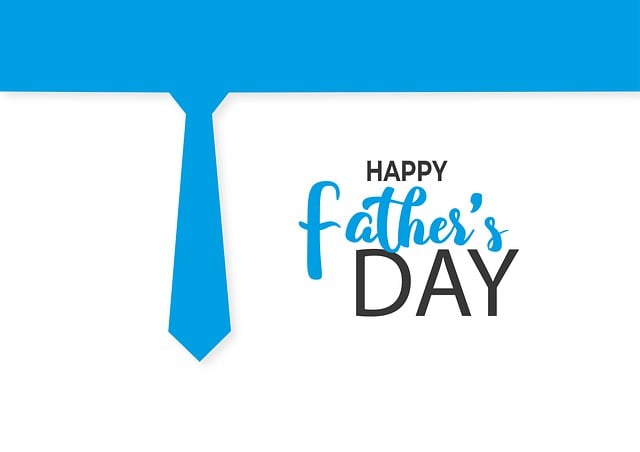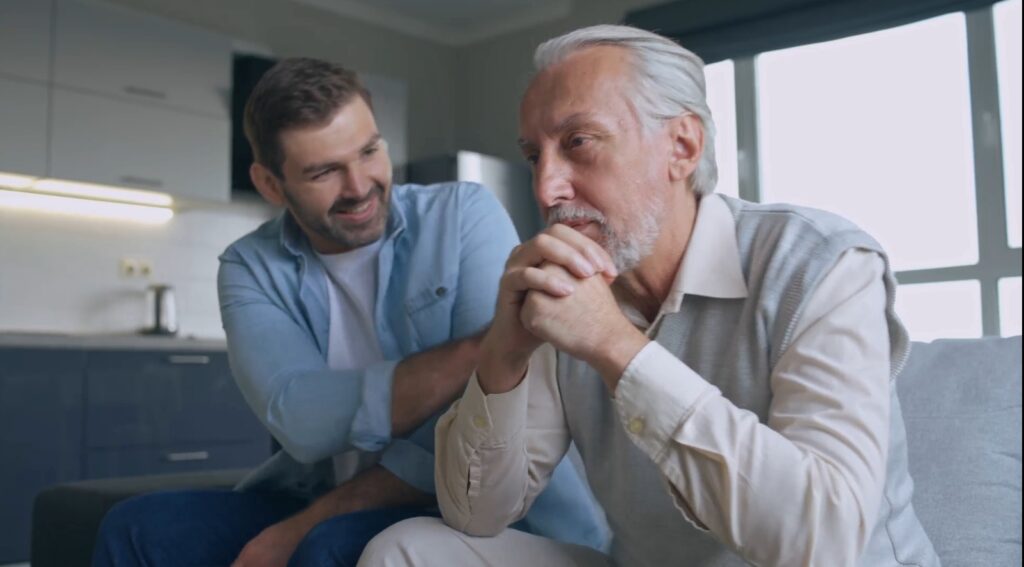Thanks for all those terrible puns, dad.
Read the article:
and then put the dialogue below in the correct order:
a) Edwards: (rolling her eyes) Sure, I’ll tell that to my teenage son when he’s mortified by his dad’s puns.
b) Evans: Exactly. So next time your husband tells a joke that makes you groan, just remember, it’s all helping your son succeed in life.
c) Evans: Did you hear? We’re honoring fathers this weekend for everything they do, even though they try to hide their tears when we graduate or move out of the house.
d) Evans: No, seriously! Think about it – understanding multiple word meanings and handling embarrassment are valuable skills. And those cringeworthy jokes also demonstrate how humor can be an effective social tool.
e) Edwards: Well, maybe I won’t roll my eyes as much from now on. Dad jokes, who knew?
f) Edwards: Oh yes, my husband is definitely not ready for our son to leave and become independent. He’s making it known by bombarding him with terrible dad jokes every day.
g) Edwards: Hmm, I guess there’s some logic behind those jokes after all.
h) Evans: Haha, classic! But did you know those dad jokes actually have a purpose? They help develop emotional intelligence and lead to success in life.
Key: 1c); 2f); 3h); 4a); 5d); 6g); 7b); 8e)
Glossary
- pun – a joke exploiting the different possible meanings of a word or the fact that there are words which sound alike but have different meanings
- corny – tiresomely simple and sentimental
- cheesy – not very good or original, and without style, in a way that is embarrassing but funny
- to endure – to experience and deal with something that is painful or unpleasant without giving up
- ostentatiously – done in in a showy, flashy way
- schtick – the type of humour typical of a comedian
Practice makes perfect
WORD FORMATION: Change the word in CAPITALS to fill in the blanks.
(…) Mark Oppenheimer, a part-time stay-at-home father of two young girls, is used to stares. “When I’m walking down the street with one baby strapped to my chest and the other in a stroller—and the kids all look happy—and I walk by a group of mothers, they’re just 1. …….. [BLOW] away,” he says. “The easiest way in the world to get a smile is to be a man with a baby.”
2………… [FATHER] has undergone a profound change in the past half a century. In 1965 fathers were spending 2.6 hours a week on child care; by 2000 that figure had reached 6.5 hours. There are three times as many stay-at-home fathers as there were a decade ago, and families headed by single fathers are the fastest-growing household type in the U.S. “When I started studying American mothers and fathers, the 3. ………. [MAJOR] of the fathers I studied had never bathed their children. Many of them had never changed a diaper,” says 4. ………….. [DEVELOPMENT] psychologist Michael Lamb of the University of Cambridge. That was in the 1970s. “Now,” he says, “men would feel embarrassed to say they hadn’t changed their children.”
For years social scientists considered fathers to be second-string parents, bench players whose main role was to jump in when Mom was otherwise engaged. That view has changed, partly thanks to research revealing that dads are anything but backup mothers. Scientists are now turning to the nuances of how and why they matter. The work shows that fathers are biologically as 5. ……….. [RESPONSE] to their children as mothers are. And yet fathers seem to influence children in unique ways. In particular, they play an outsized role in challenging their kids and stretching their emotional and 6. ……… [COGNITION] capabilities, preparing them for the big wide world.
Partners in Play
In a 1958 paper British psychiatrist John Bowlby debuted a then 7. ……….. [CONTROVERSY] idea that became known as 8. ……….. [ATTACH] theory: to develop properly, all children require a safe, secure relationship with an adult, he claimed. (…) some of the first studies to actually assess fathers, in the 1970s, found that dads are just as capable as mothers at caring for their children. Dads are equally able to interpret their infants’ distress as, say, a sign of 9. …….. [HUNGRY] or fatigue and to respond 10. ………. [ACCORDING]. Men and women have the same physiological responses—changes in heart rate, respiration, skin temperature, and more—when they encounter fussy newborns. Just like mothers, blindfolded dads can pick their babies out of a nursery lineup merely by touching all the infants’ hands. (…)
But although parenting is just as biologically natural a role for men as it is for women, fathers typically interact with their kids in a way distinct from that of mothers. In traditional two-parent households, moms tend to provide most of the care and comfort to infants, whereas dads are more likely to play with them. (…)
By eight weeks old, babies have noticed this pattern. An infant picked up by his mother will calm down, showing decreases in heart rate and respiration. When Dad picks up his child, however, the child’s heart rate and respiration increase—a sign that Junior’s getting excited for a rollicking game.
One reason for fathers’ particular 10. ………. [PLAYFUL] may lie in the traditional division of labor in American families. (…)
Key: 1. blown; 2. fatherhood; 3. majority; 4. developmental; 5. responsive; 6. cognitive; 7. controversial; 8. attachment; 9. hunger; 10. accordingly; 11. playfulness
In order to read the whole article/check your answers, go to: https://www.scientificamerican.com/article/family-guy-2012-10-23
Discuss:
- What images come to mind when you hear the word ‘father’?
- Did your father spend a lot of time with you when you were a child?
- Is your father more like a father or a best friend?
- What do/did you argue about with your father?
- What do you think is the hardest thing about being a father?
.
Watch and revise!
Father’s Day_ Celebrating Dad Jokes and Emotional Growth
https://www.cloud.worldwideschool.pl/index.php/s/RyGbjRM8ANwHS66
(4778)






